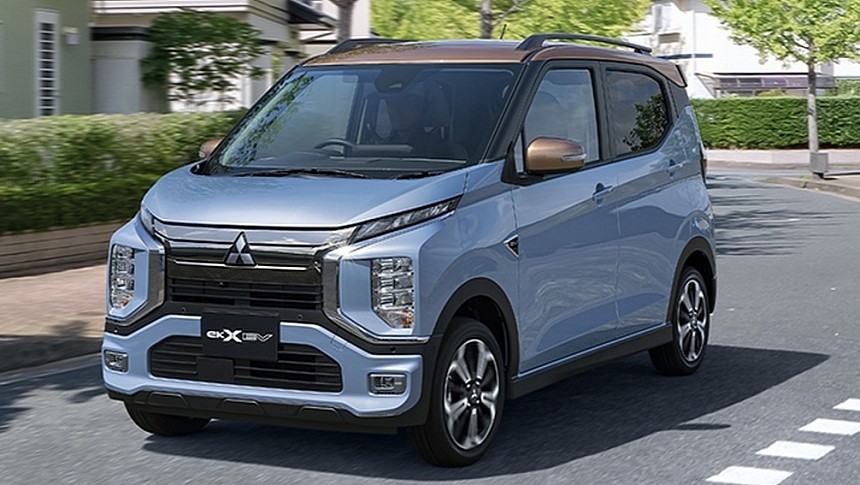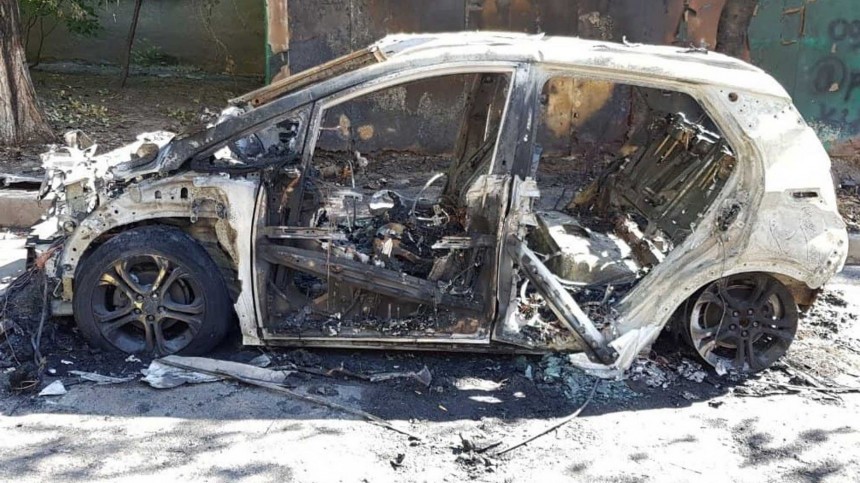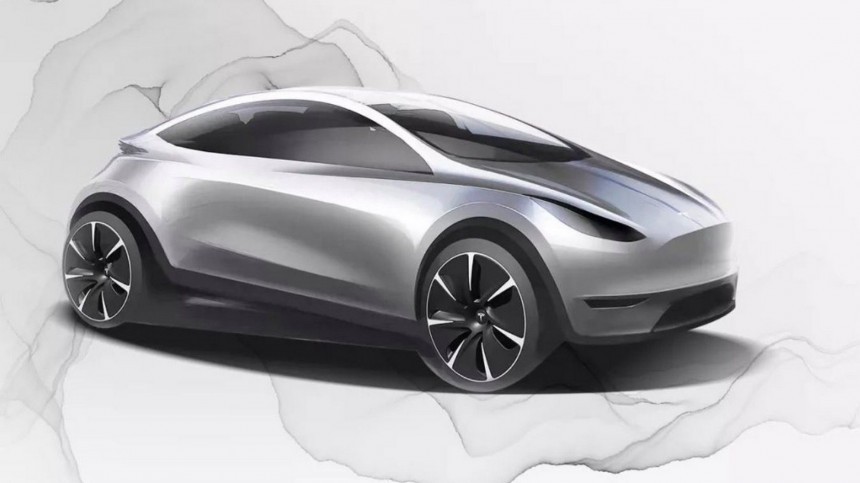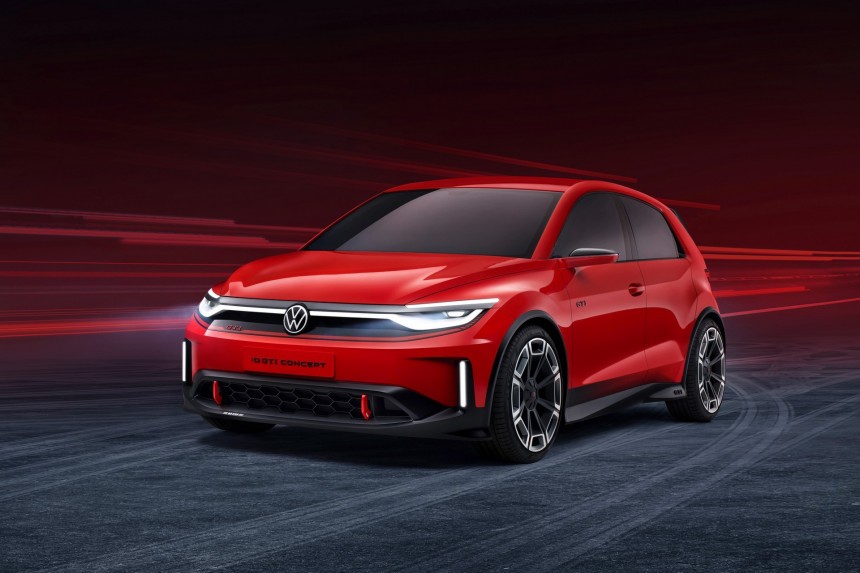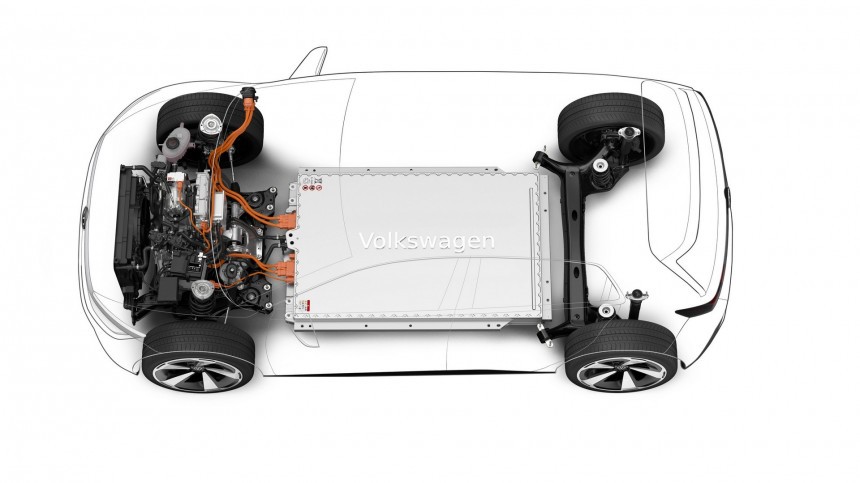Nissan said at the Japan Mobility Show that it wanted to develop more affordable electric cars. The Volkswagen Group is working on that with the MEB Lite and all the ID. 2all siblings that it will spawn. Their goal is to cost around €25,000 and still be profitable. You've also heard it from Tesla, but in dollars. What battery electric vehicle (BEV) advocates do not seem to get is that these projects and ambitions completely miss sustainability as a target – several aspects of it, at least.
The most important one is the cost of battery packs. They demand $30,000 when talking about 90-kWh components – Tesla charges $21,000 for a new one and $10,000 if you decide to keep your old unit. Let's suppose these vehicles offer half that capacity for half the money: we'd have 45-kWh battery packs for $15,000. That's 60% of the price of a car designed to cost $25,000.
Check what happened with the Chevrolet Bolt EV. Its battery pack delivers 65 kWh. After GM took ages to recognize that the fires happening with it were caused by a manufacturing defect, it said it would replace all the defective modules. That would demand $1.8 billion and take ages: it would need to make new battery packs. Last June, it changed its mind and said it would check the battery packs for 6,200 miles (10,000 kilometers), forcing the owners to limit charging to 80%.
Should any anomaly be detected during that mileage, the Bolt EV owner would become eligible for a battery pack or a module replacement. If nothing happened, they would recover full battery charging capacity. Now, General Motors is offering these customers $1,400 as compensation for the issues. In exchange, it just wants them to "forever waive" any rights to sue or join class actions for "known or unknown" problems with the battery pack. One such lawsuit already exists. If the compensation is higher than $1,400, the automaker said it will pay the difference to those who sign the deal for that compensation.
This all means GM lost money with every Bolt EV it sold. Worse, it is backtracking and restricting its BEVs' usefulness to avoid losing even more. And that's for a car that probably didn't even offer fat profit margins in the first place. A carmaker can go broke if it messes up with an affordable electric vehicle slated to sell millions of units. That's the first lack of sustainability these vehicles present – and I didn't even mention the consumers' side of this story.
Imagine you are craving one of these affordable BEVs and buy a new one for $25,000. As it is an electric car, you know that it makes no sense to sell and buy a new one every two or three years because it does not directly emit carbon or other pollutants. In theory, you could keep it for decades. Bob Atkins' mother-in-law had this plan with the Model S 85 she bought new in 2014 when she was 75. Nine years and only 43,280 miles (69,652 kilometers) later, she discovered she would have to replace the battery pack. You already know how much it costs, but a bit more context makes the story scarier.
According to MotorTrend, it cost $79,990 in 2014. Currently, Kelley Blue Book says you can buy one for around $25,000, almost as much as a new battery pack. Apply that to an affordable BEV that starts at $25,000. What will happen when this car is nine years old? It will not be the automaker's business, right? Or the business of those who purchase new vehicles every two to three years, if not sooner. But just wait to see what is going to happen. In fact, you do not have to wait that much: the gears are already turning.
Hertz shared how much money it lost by purchasing loads of Teslas. When they got involved in crashes, the repair costs were twice as much as those involving ICE vehicles. If they were salvaged, Tesla's price cuts would make the rental car company lose even more money because the insurance companies would pay much less than Hertz paid for these vehicles. The rental car company is only the best example of what happened to Tesla owners after the company's discounts.
A now famous video from the Vehicle Virgins YouTube channel shared that one customer paid almost $140,000 for his Model S Plaid in December 2021. He financed the vehicle, which now costs $89,990. Should his car be totaled, he will not manage to pay his debt. The youtuber said he had never lost so much money on a single vehicle.
Although price cuts will probably never happen with $25,000 BEVs, what if they face crashes that affect the battery pack? What if a mere fender bender turns them into total losses, as has been happening with Rivian R1T units? Insurance companies will either refuse coverage or will charge so much that affordable BEVs will have expensive insurance policies. People will avoid buying them based solely on that. Ownership will not be sustainable, which will lead to making and selling them a tricky business – if feasible at all. But not at first, mind you.
A $25,000 BEV would enjoy the $7,500 tax incentive the Inflation Reduction Act (IRA) created. We're talking about a vehicle that would eventually cost only $17,500 – depending on how much anyone had to pay in taxes. Those with smaller tax liabilities would not get it in full. The Department of the Treasury wants to change that: buyers will be able to transfer their tax credits to the dealers, which can then offer the $7,500 discount at the point of sale. If that is codified, the discounts will be immediate. While that seems to be great news for those with lower incomes willing to buy a BEV, it also promises to bite them back. Hard.
Selling these BEVs would prove to be the easy part. If they left dealerships or were directly delivered at the pace they needed to justify their low prices, we'd see a much higher pressure on charging stations and repair shops. Tesla already has a problem at its Service Centers in which people have to wait weeks for an appointment – which it makes even worse due to lousy quality control. Add thousands of affordable cars to the long list of customers waiting for repairs, mainly if they accept delivery with things to fix – as it happens nowadays with several Tesla units.
More traditional carmakers know how to avoid that, but they may not prevent issues with the cars – again, check GM with the Bolt EV. Even if they manage to dodge all these traps, people will still need to charge. Affordable BEVs will be great for people who can charge them at home, but those with low incomes usually live in apartments, which makes it more difficult for them to recover energy to drive while they sleep. If they decide to drive on any given holiday, the fast charging stations currently available will not be enough. That is already a problem with the current amount of BEVs circulating. Preventing it would demand the deployment of new charging stalls as fast as these $25,000 electric cars hit the streets.
Although some people may fail to grasp that at this point, most car buyers seem to be perfectly aware. That's why BEV inventories are increasing. Dealers already warned the automakers they represent that there is no demand for so many units. Several companies halted their electric shift plans, even if those who committed to going full electric have no other option at this point.
The future is electric: it makes no sense to keep burning stuff to move vehicles, especially when the things that burn them are as inefficient as internal combustion engines. That does not mean we will get there with the current battery technology or at the pace BEV advocates think we can get there. This is what I intend to address in my second text about unsustainable $25,000 BEVs.
Check what happened with the Chevrolet Bolt EV. Its battery pack delivers 65 kWh. After GM took ages to recognize that the fires happening with it were caused by a manufacturing defect, it said it would replace all the defective modules. That would demand $1.8 billion and take ages: it would need to make new battery packs. Last June, it changed its mind and said it would check the battery packs for 6,200 miles (10,000 kilometers), forcing the owners to limit charging to 80%.
Should any anomaly be detected during that mileage, the Bolt EV owner would become eligible for a battery pack or a module replacement. If nothing happened, they would recover full battery charging capacity. Now, General Motors is offering these customers $1,400 as compensation for the issues. In exchange, it just wants them to "forever waive" any rights to sue or join class actions for "known or unknown" problems with the battery pack. One such lawsuit already exists. If the compensation is higher than $1,400, the automaker said it will pay the difference to those who sign the deal for that compensation.
Imagine you are craving one of these affordable BEVs and buy a new one for $25,000. As it is an electric car, you know that it makes no sense to sell and buy a new one every two or three years because it does not directly emit carbon or other pollutants. In theory, you could keep it for decades. Bob Atkins' mother-in-law had this plan with the Model S 85 she bought new in 2014 when she was 75. Nine years and only 43,280 miles (69,652 kilometers) later, she discovered she would have to replace the battery pack. You already know how much it costs, but a bit more context makes the story scarier.
According to MotorTrend, it cost $79,990 in 2014. Currently, Kelley Blue Book says you can buy one for around $25,000, almost as much as a new battery pack. Apply that to an affordable BEV that starts at $25,000. What will happen when this car is nine years old? It will not be the automaker's business, right? Or the business of those who purchase new vehicles every two to three years, if not sooner. But just wait to see what is going to happen. In fact, you do not have to wait that much: the gears are already turning.
A now famous video from the Vehicle Virgins YouTube channel shared that one customer paid almost $140,000 for his Model S Plaid in December 2021. He financed the vehicle, which now costs $89,990. Should his car be totaled, he will not manage to pay his debt. The youtuber said he had never lost so much money on a single vehicle.
Although price cuts will probably never happen with $25,000 BEVs, what if they face crashes that affect the battery pack? What if a mere fender bender turns them into total losses, as has been happening with Rivian R1T units? Insurance companies will either refuse coverage or will charge so much that affordable BEVs will have expensive insurance policies. People will avoid buying them based solely on that. Ownership will not be sustainable, which will lead to making and selling them a tricky business – if feasible at all. But not at first, mind you.
Selling these BEVs would prove to be the easy part. If they left dealerships or were directly delivered at the pace they needed to justify their low prices, we'd see a much higher pressure on charging stations and repair shops. Tesla already has a problem at its Service Centers in which people have to wait weeks for an appointment – which it makes even worse due to lousy quality control. Add thousands of affordable cars to the long list of customers waiting for repairs, mainly if they accept delivery with things to fix – as it happens nowadays with several Tesla units.
More traditional carmakers know how to avoid that, but they may not prevent issues with the cars – again, check GM with the Bolt EV. Even if they manage to dodge all these traps, people will still need to charge. Affordable BEVs will be great for people who can charge them at home, but those with low incomes usually live in apartments, which makes it more difficult for them to recover energy to drive while they sleep. If they decide to drive on any given holiday, the fast charging stations currently available will not be enough. That is already a problem with the current amount of BEVs circulating. Preventing it would demand the deployment of new charging stalls as fast as these $25,000 electric cars hit the streets.
The future is electric: it makes no sense to keep burning stuff to move vehicles, especially when the things that burn them are as inefficient as internal combustion engines. That does not mean we will get there with the current battery technology or at the pace BEV advocates think we can get there. This is what I intend to address in my second text about unsustainable $25,000 BEVs.
